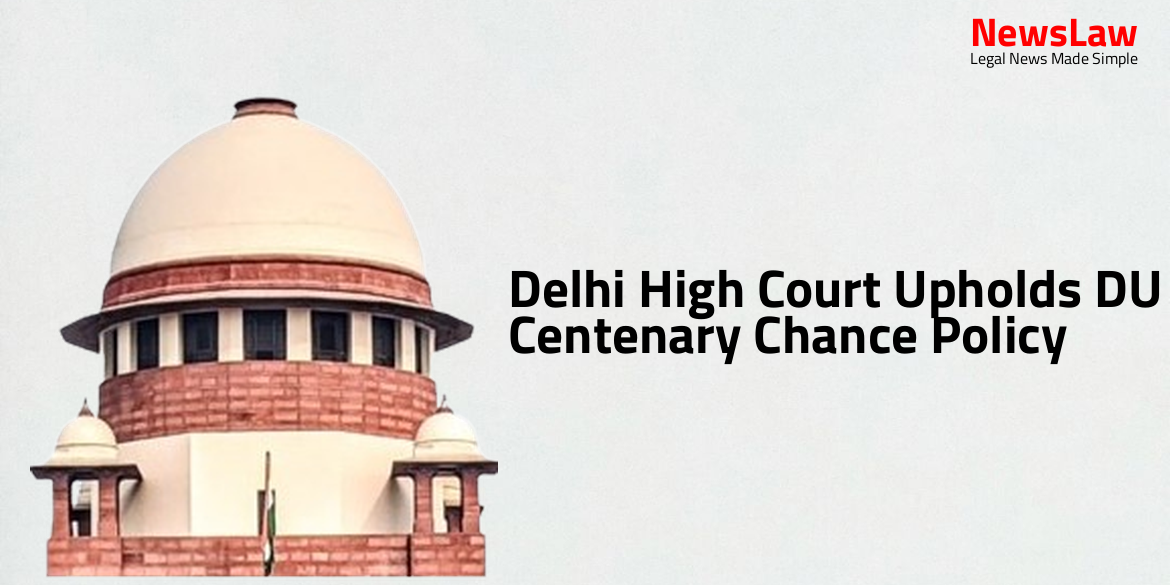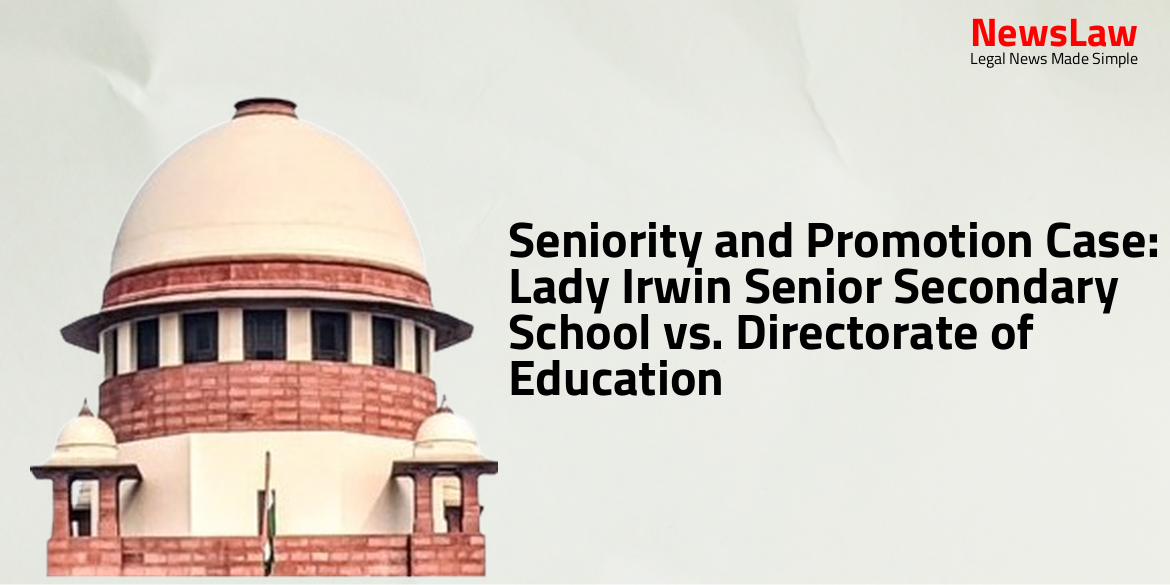In a recent judgement, the Delhi High Court has affirmed the Centenary Chances policy of Delhi University, dismissing a writ petition challenging the restriction on the number of papers that can be attempted in each chance. The case involved a student and the University, with the Court ruling that academic policy decisions are within the discretion of the university and should not be interfered with lightly.
Arguments
- The petitioner took an informed decision to attempt the remaining five papers in the Second Centenary Chance based on oral information from the authorities.
- Mr. Chowdhury argues that each Centenary Chance should allow students to attempt all remaining papers to clear backlogs.
- The petitioner had 14 papers remaining in her LLB course at the time of the second centenary chance.
- The notification on 1 May 2022 did not impose restrictions on the number of papers that could be attempted.
- The petitioner attended the Campus Law Centre (CLC) for her LLB course between 2009 and 2012.
- In the LLB course, a total of 30 papers need to be attempted, and the petitioner attempted only 9.
- In the second centenary examination, students were limited to re-attempting a maximum of four papers, leaving the petitioner with two papers still to clear.
- The petitioner argues that any limitation on the number of papers that can be attempted is arbitrary and should not exist.
- The Court is examining if a prima facie case exists for issuing notice to the DU regarding the restriction of paper attempts in the second centenary examination.
- The impugned notification of 1 April 2024, restricting paper attempts to four, is considered a legitimate policy decision by the university.
- The petitioner applied to attempt all 14 papers in the First Centenary Chance.
- The petitioner asserts that every centenary chance by DU should cover all remaining papers for a student to clear.
Analysis
- The Centenary Chances provided by the DU were benefices, not rights, and were not based on any statutory provisions.
- The petitioner attempted 9 out of 14 remaining papers in the First Centenary Chance, clearing 8.
- There was no legal obligation for the DU to provide a second Centenary Chance.
- The DU’s decision to restrict the number of papers in the Second Centenary Chance to four was not arbitrary.
- Courts must be slow to interfere in academic policy matters and should not defer to the academic authorities’ wisdom.
- The petitioner’s claim of expecting another opportunity based on oral communication was unsubstantiated.
- The DU’s decision on the number of papers for each Centenary Chance is a matter of academic policy and discretion.
- There was no right for the petitioner to insist on attempting all backlog papers in the Centenary Chances.
- The Court believes that issuing of notice in such matters should be cautious.
- No evidence of arbitrariness or invalidity of the policy in question has been presented in the writ petition or oral arguments.
- Constantly challenging academic bodies’ policy decisions in court could harm their autonomy and administrative freedom.
Decision
- The writ petition has been dismissed in limine costs.
- The court does not find a case for issuance of notice in the present case.
Case Title: CHHAVI Vs. UNIVERSITY OF DELHI (2024:DHC:4155)
Case Number: W.P.(C)-7284/2024



